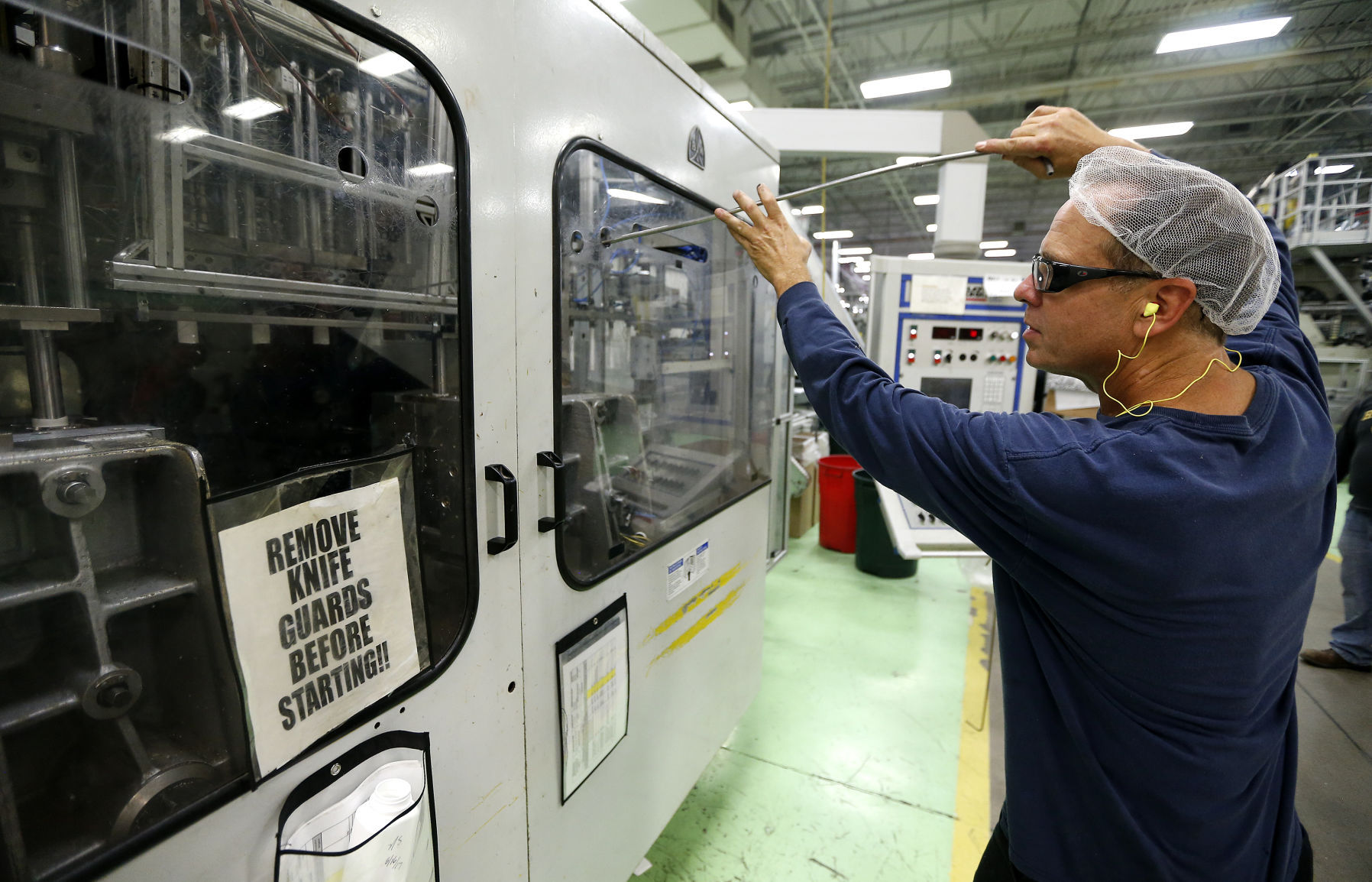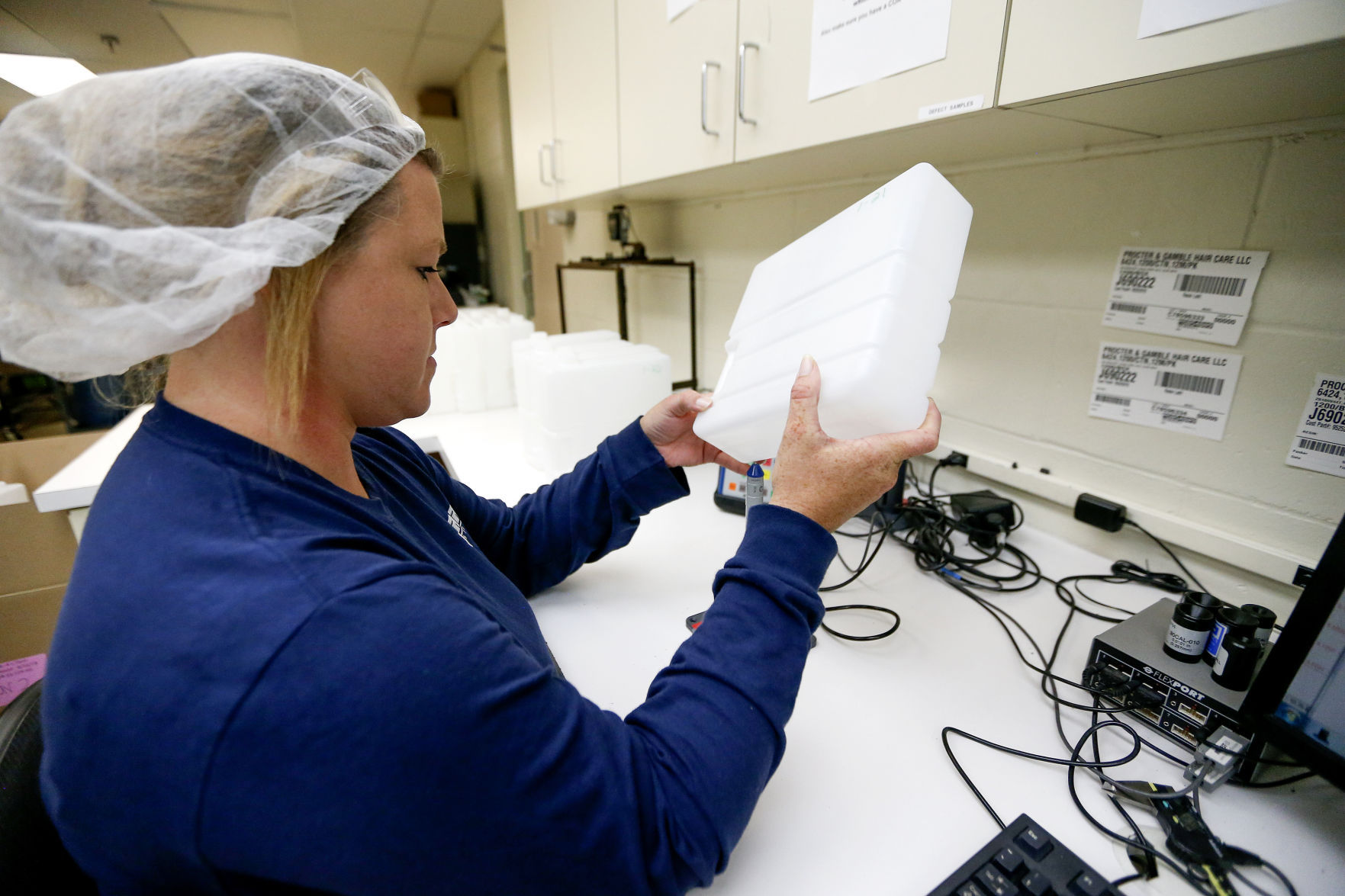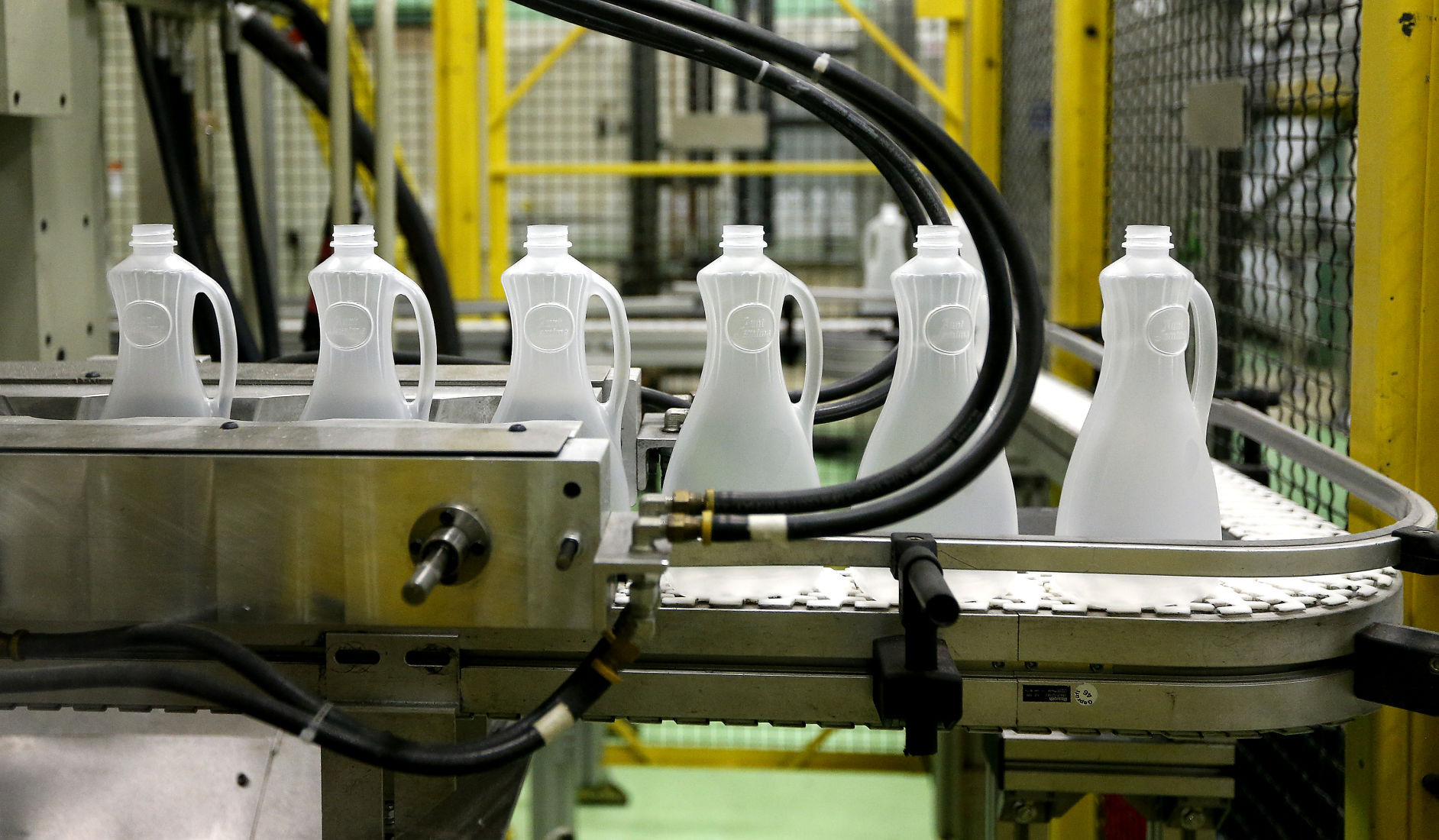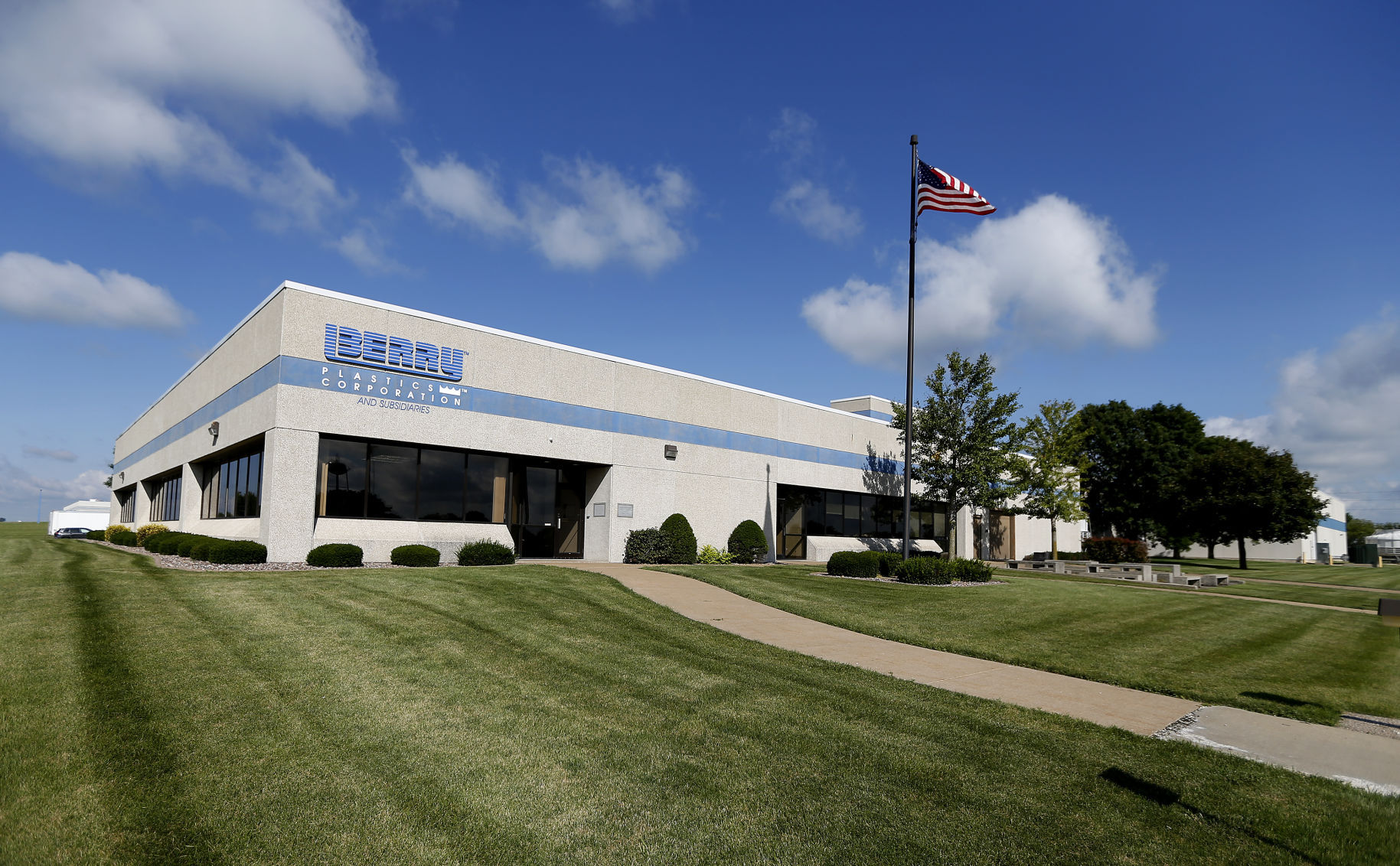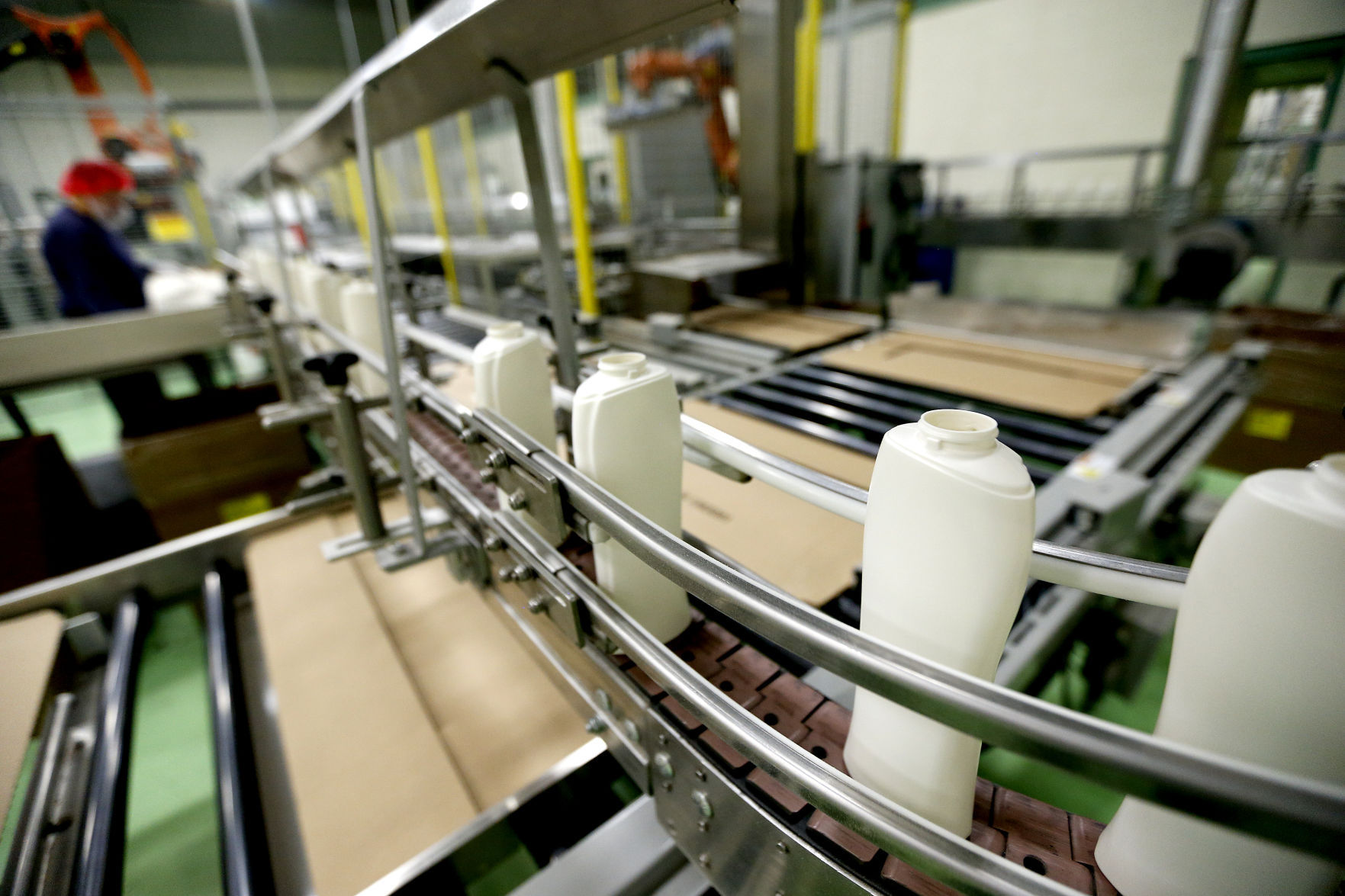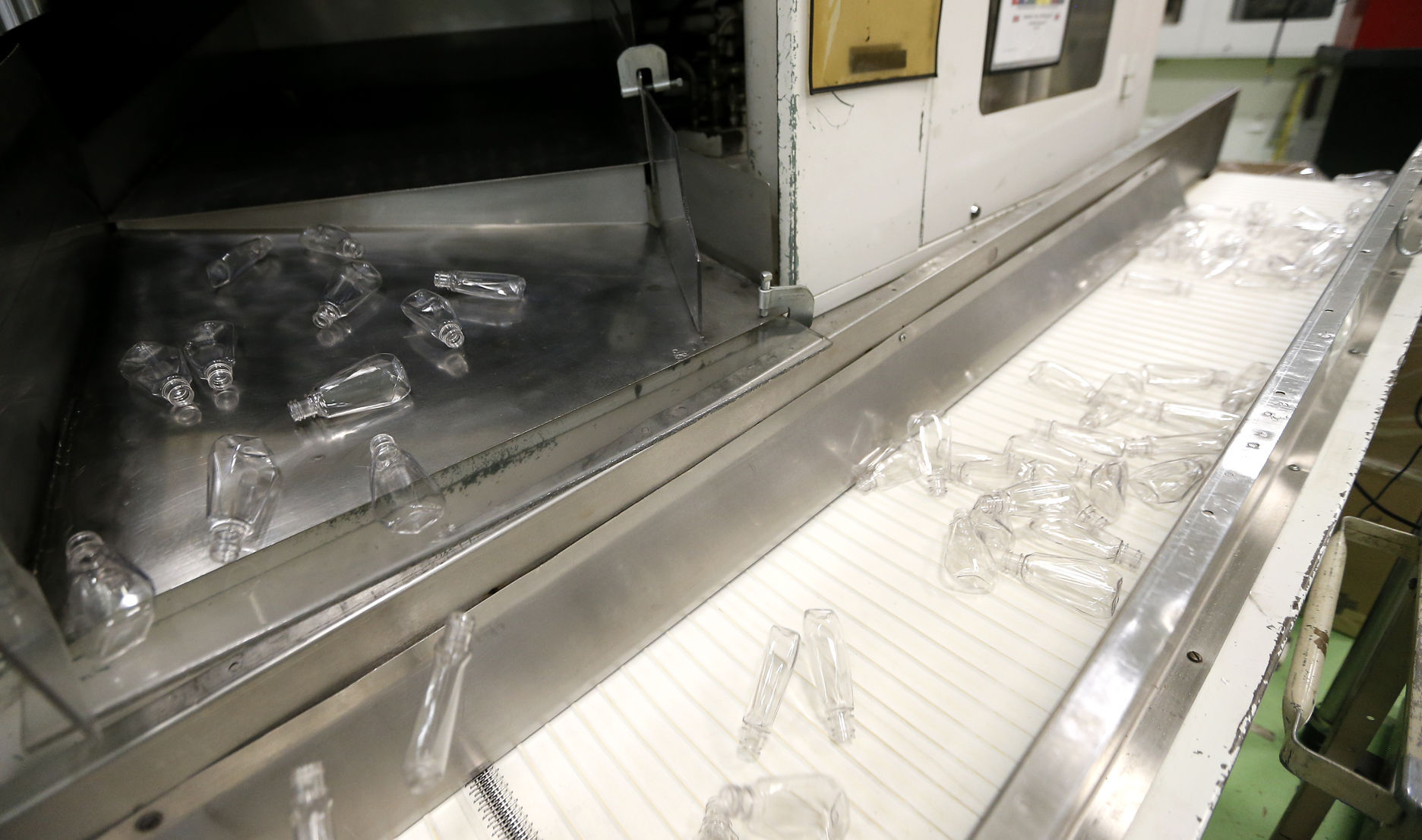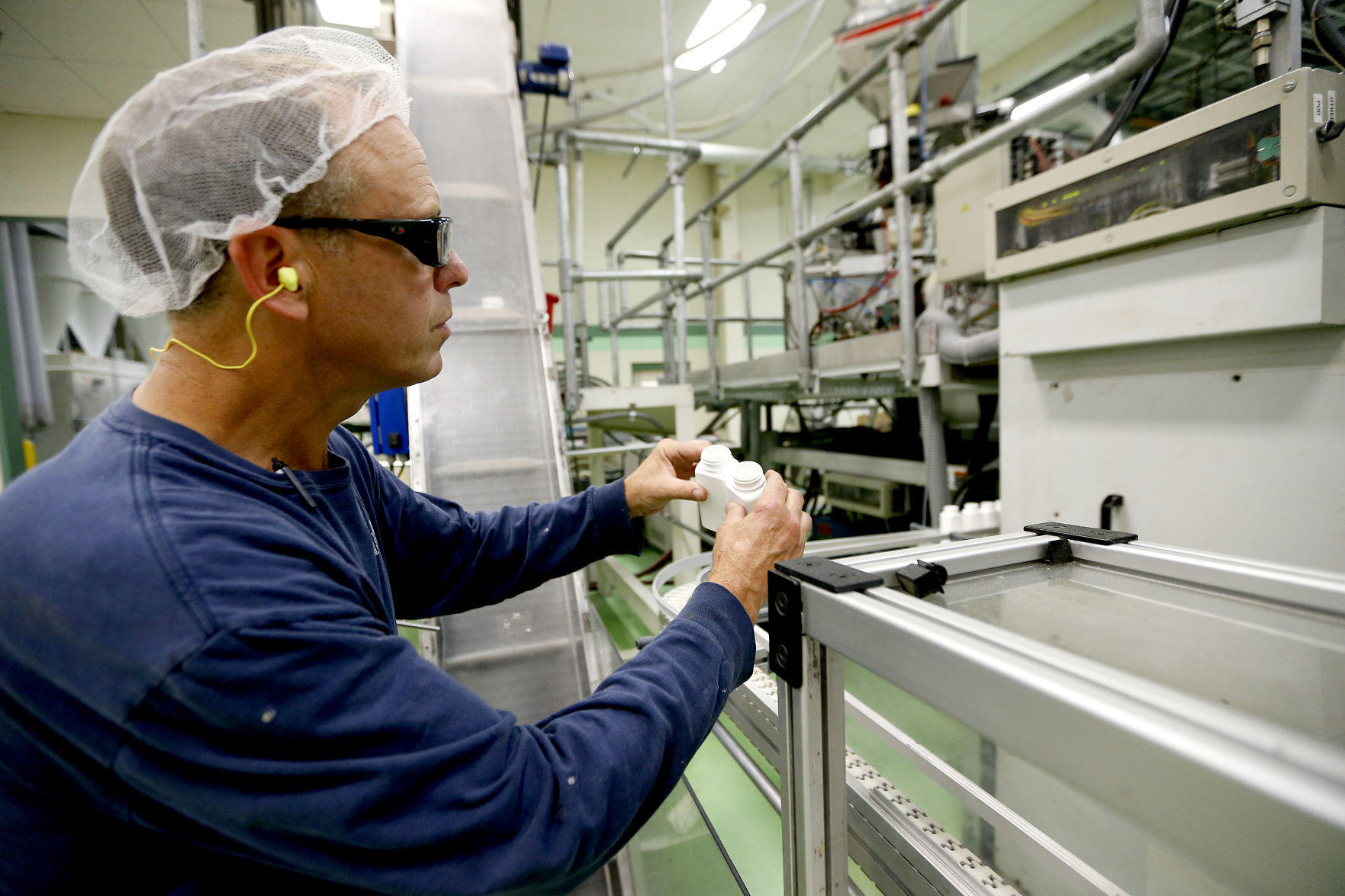PEOSTA, Iowa — From syrup bottles to body wash containers, a long list of household items are created at the Berry Global facility.
Still, officials at the company acknowledge that the business isn’t a household name in the tri-state area.
“I am amazed by how many people don’t know what we produce and what we do,” said Vyron Nelson, who manages the plant at 19101 Kapp Drive.
Both the facility housing Berry Global and the company are celebrating milestone anniversaries this year.
The building was constructed in 1987. The business originally operated under the name Captive Plastics.
The business was purchased in 2008 by Berry Plastics, a company that since has changed its named to Berry Global.
Berry Global was founded 50 years ago in Evansville, Ind.
Julie Ryan, human resources manager for Berry Global, said it is virtually impossible to name every kind of product produced by the company today.
“Your toilet paper is wrapped in plastics, your cases of paper towels, cases of water, your trash bags and even the hay that you see wrapped up in fields,” she said, adding, “There are so many things that Berry makes that people see in their everyday life.”
The company has 130 locations worldwide, including multiple facilities in Europe and Asia.
PEOS
TA NICHE
Each factory has its niche, and the one in Peosta is no exception.
Ryan said the plant’s major clients include consumer goods company Procter & Gamble, pharmaceutical companies Abbvie Inc. and Abbott Laboratories and food conglomerate Quaker Oats Co.
Products produced in Peosta include pharmaceutical bottles, personal care bottles for body spray and shampoo and containers for the food industry. Ryan said Old Spice body wash and Aunt Jemima syrup bottles are among the items produced in large numbers in Dubuque County.
“Any time you grab an Aunt Jemima bottle off the shelf, it was made here in Peosta,” Ryan said. “We make all the Aunt Jemima bottles for North America.”
Ryan said the processes unfolding at Berry Global generally follow a similar pattern, although these procedures can vary depending on which product is being created.
She said resin is brought into the region by rail and placed in one of six on-site silos. This resin then is pumped into machines where it is heated to more than 300 degrees and transformed into a semi-liquid substance.
This permeable substance is shaped with various molds, before machinery clips off the excess plastic. The bottles travel through a cooling tunnel before they are placed in boxes.
Nelson said this process can vary depending on the type of product.
Nelson noted that three kinds of molding take place at the plant: Injection-blow molding, stretch-blow molding and extrusion-blow molding.
KEEP
ING BUSY
The Berry Global facility in Peosta spans approximately 185,000 feet, with 100,000 square feet reserved for production, 70,000 used for warehousing and the remainder housing locker rooms, break rooms and office space.
Ryan noted that the facility originally was about 115,000 square feet, but a 70,000-square-foot expansion in 2011 brought the building to its current size.
Within the structure, Berry Global employs about 100 workers.
These employees function in an environment that has grown increasingly automated.
Nelson said the incorporation of new technologies has altered Berry Global’s hiring practices and compelled them to look for a new skill set when seeking prospective employees.
“Their work has become a lot more technical over time,” Nelson said. “When we are hiring, it is important to look at the computer skills people have.”
The employees at Berry Plastics oversee an operation that never sleeps.
Nelson estimated that 1 million bottles are produced daily in Peosta, including about 120,000 that eventually are filled with Aunt Jemima syrup.
Staffers work in multiple shifts in a facility that cannot afford down time.
“In the plastic industry, it is very costly to start up and shut down. It can take three to four hours for the machines to heat up,” Nelson said. “So we operate 24 hours a day, seven days a week.”


